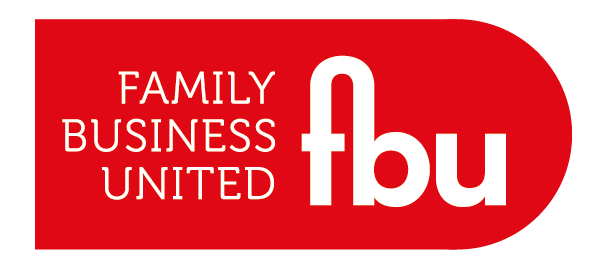The 7 wastes are inappropriate processing, transporting, defects, overproduction, waiting, unnecessary motions, and unnecessary inventory.
Traditionally, these apply more to product-based businesses, rather than service-based ones. So, we have come up with a selection of service-based alternatives.
The first of the seven wastes is inappropriate processing. Service-based alternatives to the traditional sense of this waste include having too many people on a particular job, having senior staff performing tasks that junior staff could do, and having to repeatedly handle work that could be automated or delegated. If you've got too many people on a job, could any of them consider it a training exercise instead? That way there will be a reduced impact on the bill, but people's involvement can continue. It might also be useful to consider the value that each person brings. If it is not valuable from a training or company perspective, don’t invite them!
The second waste is transporting. Now, normally this means transporting goods between depots or retail outlets, but this doesn't really apply to businesses that work in the services space. So, service-based alternatives include the time that you yourself spend travelling, although this will certainly have decreased since COVID. Some others would be the layout of your office or work environment, if you have to move around it in inefficient ways, and using the right communication mechanisms. Are you having phone calls or in person meetings when in reality you could've sent an email? That's a waste!

The third waste is defects. This one translates more easily to services as many of the standard ideas are also applicable here. Defects are things that cost money either now or later and their costs impact directly on the bottom line. In a service orientated business this can be things like making mistakes but not learning from them, making scope errors and putting more work on your plate than intended, or poor internal communication. All of these things are defective processes that hurt you and your clients. Minimising them will lead to enormous benefits!
The fourth waste is overproduction. This would traditionally be defined as producing more goods than necessary to meet a customer’s demands. It refers to producing "just in case" rather than "just in time". The service equivalent of this would be scope creep and overdelivering, particularly if you have a capped budget and overdelivering hurts your recovery rate. This could include having more fee earners than necessary on a piece of work, or having multiple service standards.
The fifth waste is waiting. Something that we are all too familiar with! It occurs whenever time is not used efficiently. Any time spent waiting for a deliverable to move on to the next operation is a waste. That time could be better used to add value. Other examples of waiting waste include having to wait for clients or team members to get in touch, having to wait for people to get back from leave, and having to wait until multiple people's schedules align for a meeting.
The sixth waste is unnecessary motions. Conventionally, this would refer to ergonomics, and would be seen in instances of stretching, reaching, and bending. Examples of this that one would encounter in a service business include unnecessary supervision, where someone is capable of completing a task, but they are supervised for the mere sake of it, overly complex procedures with more steps than they need to have, and poor training methodology that leads to newer or more junior team members not picking up skills as quickly as they could. In addition to these, there could also be issues that arise round remote working in our new COVID-y world, such as scheduling calls, the ergonomics of communication, and personal conversation in calls. Now, I'm not suggesting that making small talk with colleagues is a bad thing. It's vital for interpersonal relations and team cohesion! But where it used to be a very organic process it has become more regimented. This is where the potential for waste comes in. There is also room for waste with filing – how long does it take you to find the documents you need? Setting up a good filing system can be difficult, but you will save hours in the future. Setting up templates can also be a good idea, even if sometimes it can feel like reinventing the wheel.
The seventh waste is unnecessary inventory. This refers to the stored value that exists within your organisation. Whether that may be in literal inventory that is waiting to be sold, or your work in progress. Examples of this found in a service-based business include not billing at appropriate points, continuing to serve clients who don’t pay, and scope creep or gold plating.
So - how can you reduce these 7 wastes in your service business?
One of the best methods is to take the time to seriously consider your delegation practice. If you often find yourself starting a task and thinking "hold on, there's no need for me to do this when a more junior team member could", it's worth picking out an hour or so to go through the tasks you regularly do and if they could be delegated. Also bear in mind that if your more junior team members don't currently have the skills required for a particular task, but they could do it, it would probably be a good investment to teach them now so they can take that task off you in future. Your pension fund is invested, so invest your time as well!
Another pretty common waste that you'll want to eliminate is scope creep. You gradually do more and more for a client that wasn't included in the original scope. This leaves less time for you to do what was initially agreed, which can have a negative impact on the quality of work you deliver, or on your recovery rate. It's vitally important to not let this happen whenever you can. If a client asks you to do something for them, think! Is this included within the original scope? If it's not, say that to them! They may decide they don't want you to do it, so you've gained nothing and lost nothing, or they'll decide that they do and they're willing to pay more for it.

A good way to reduce the 6th waste, unnecessary motions, is to specifically schedule time for more social affairs. It's important for your team to have time for things like small talk, but with remote working it's harder for it to happen spontaneously. One way to fix this is to schedule team tea breaks with a video call. We do ours at 3pm on a Wednesday. It's a nice space to have a quick break and catch up with your colleagues!
If your internal communication is poor, that's a waste too. You might not even realise that it's poor! Ask yourself: does your communication software have any features that you don't use? If so, why? Could you change your communication practices to make use of these features? You are paying for them, after all! You can find out more about how to increase the effectiveness of your internal communication here.
There are many other ways to reduce waste in your business that we haven't mentioned here. Leave a comment with any others you think of!




